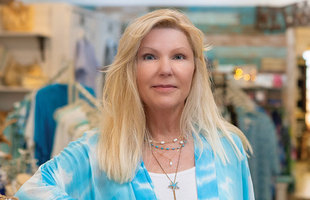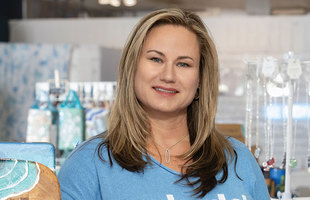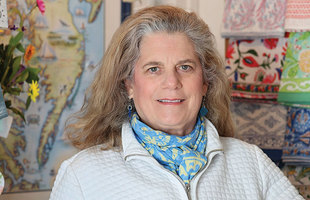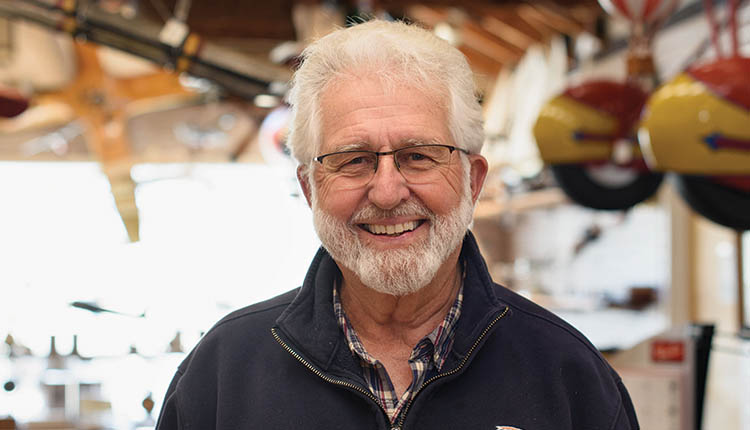
It took just one time for John Harris to get hooked. He bought a mail-order hang glider in 1973 for about $600 after seeing a picture of one, and the rest is history.
“I was inspired by the story of the Wright Brothers, so I went to Kitty Hawk with some friends to learn how fly it.” On July 13, 1974, Harris became the first person to fly a hang glider off North Carolina’s Grandfather Mountain.
Flying that hang glider changed the course of Harris’ life. “Teaching the World to Fly” became his mission and the slogan for his new business, Kitty Hawk Kites Inc. (KHK), founded later that same year.
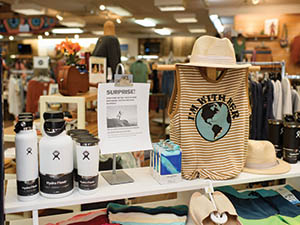
A seaside location — an old garage with an outhouse on North Carolina’s Outer Banks — became the first store. Five years later, Harris did well enough to build a new store, the current flagship in Nags Head.
The company now claims to be the largest brick-and-mortar kite retailer in the United States with over 20 stores along the coast of North Carolina and with locations in Florida, Virginia and New Hampshire.
Learning to fly
From the beginning, KHK was much more than a shop that sold T-shirts and kites and sold and repaired hang gliders — it was one of the very first hang gliding schools on the East Coast and now, the largest in the world.“We’re also involved in a big way with kitesurfing, stand-up paddle boarding and kayaking,” says Harris. “Our latest thing is kayak fishing, a growing environmentally friendly sport.”
At the stores, one can buy small $10 kites all the way up to large display kites that can lift giant inflatable octopuses and dolphins, plus clothing, accessories, home decor, toys and more.
“We have some of the nicest beaches on the East Coast. Without protecting them and our waterways, we wouldn’t have the recreational opportunities that we have here.” — John Harris
“We do kite festivals where we fly all of those big kites,” says Harris. “And we have a kiteboarding school and sell all the gear. It’s another eco-friendly activity that doesn't require any fuel.”
Keeping plastics out of the oceans
Harris says customers appreciate KHK’s effort to carry environmentally friendly goods, such as its recent change of selling water in recyclable aluminum cans instead of plastic. The stores’ biggest sellers are reusable steel drinkware by Yeti, Hydroflask and Corksicle.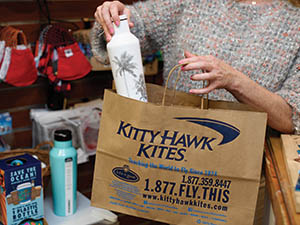
“People buy them instead of plastic water bottles and straws that are bad for the ocean,” says Harris.
Both companies pledge to remove one pound of plastic from the ocean for every product purchased. KHK is a Certified Ocean Friendly Establishment by the North Carolina Coastal Federation, one of several environmental groups the company supports.
“There are a number of things that we had to do to get that certification,” says Ben Saltzman, KHK marketing director. “Like only using recycled paper bags in our Outer Banks stores and offering discounts to customers who bring their own. We also sell totes made out of recyclable material.”
The company’s environmental preservation efforts don’t end there. At its distribution center, all cardboard, paper, plastic, glass and aluminum is recycled, and boxes are reused. A filtered water dispenser replaces plastics bottles.
KHK doesn’t just talk the talk. It has organized many beach cleanups and donates to the land-preserving North Carolina Coastal Land Trust.
“We have some of the nicest beaches on the East Coast,” says Harris. “Without protecting them and our waterways, we wouldn’t have the recreational opportunities that we have here.”
